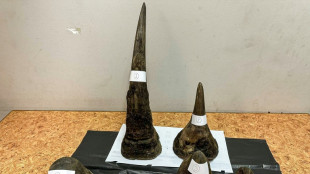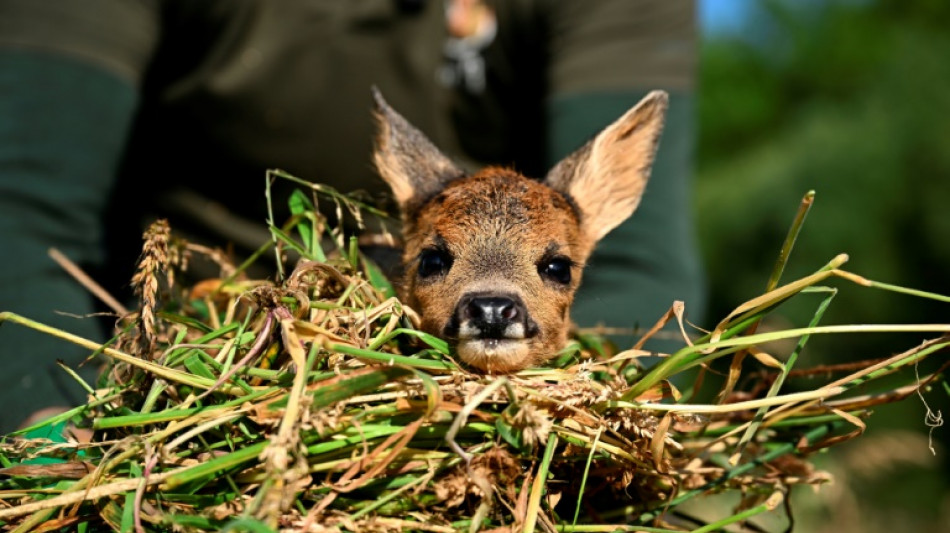
-
 James's All-NBA streak ends as Lakers rule superstar out of Spurs clash
James's All-NBA streak ends as Lakers rule superstar out of Spurs clash
-
Anti-Khamenei slogans in Tehran on eve of revolution anniversary: social media footage

-
 Colombian senator kidnapped, president targeted in election run-up
Colombian senator kidnapped, president targeted in election run-up
-
Britney Spears sells rights to her music catalog: US media

-
 West Ham end Man Utd's winning run, Spurs sink to 16th
West Ham end Man Utd's winning run, Spurs sink to 16th
-
US skate star Malinin leads after short programme in Olympics

-
 Man Utd's Sesko strikes late to rescue West Ham draw
Man Utd's Sesko strikes late to rescue West Ham draw
-
Shiffrin flops at Winter Olympics as helmet row grows

-
 Celtics' Tatum practices with G League team but injury return uncertain
Celtics' Tatum practices with G League team but injury return uncertain
-
Gisele Pelicot publishes memoirs after rape trial ordeal

-
 Newcastle beat sorry Spurs to leave Frank on the brink
Newcastle beat sorry Spurs to leave Frank on the brink
-
'Outrage' as LGBTQ Pride flag removed from Stonewall monument

-
 Chappell Roan leaves agency headed by embattled 2028 Olympic chief
Chappell Roan leaves agency headed by embattled 2028 Olympic chief
-
Venezuelan authorities move Machado ally to house arrest

-
 YouTube rejects addiction claims in landmark social media trial
YouTube rejects addiction claims in landmark social media trial
-
Google turns to century-long debt to build AI

-
 'I felt guided by them': US skater Naumov remembers parents at Olympics
'I felt guided by them': US skater Naumov remembers parents at Olympics
-
Till death do us bark: Brazilian state lets pets be buried with owners

-
 'Confident' Pakistan ready for India blockbuster after USA win
'Confident' Pakistan ready for India blockbuster after USA win
-
Latam-GPT: a Latin American AI to combat US-centric bias
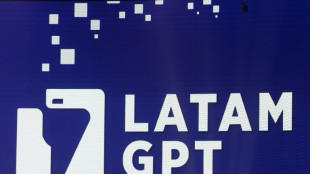
-
 Gauff dumped out of Qatar Open, Swiatek, Rybakina through
Gauff dumped out of Qatar Open, Swiatek, Rybakina through
-
Paris officers accused of beating black producer to stand trial in November
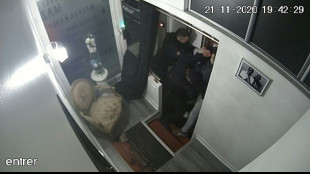
-
 Istanbul bars rock bands accused of 'satanism'
Istanbul bars rock bands accused of 'satanism'
-
Olympic bronze medal biathlete confesses affair on live TV

-
 US commerce chief admits Epstein Island lunch but denies closer ties
US commerce chief admits Epstein Island lunch but denies closer ties
-
Mayor of Ecuador's biggest city arrested for money laundering
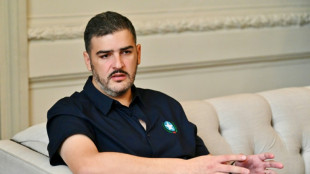
-
 Farhan, spinners lead Pakistan to easy USA win in T20 World Cup
Farhan, spinners lead Pakistan to easy USA win in T20 World Cup
-
Stocks mixed as muted US retail sales spur caution
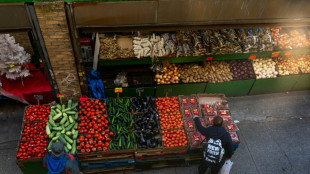
-
 Macron wants more EU joint borrowing: Could it happen?
Macron wants more EU joint borrowing: Could it happen?
-
Shiffrin flops at Winter Olympics as helmet row simmers

-
 No excuses for Shiffrin after Olympic team combined flop
No excuses for Shiffrin after Olympic team combined flop
-
Pool on wheels brings swim lessons to rural France

-
 Europe's Ariane 6 to launch Amazon constellation satellites into orbit
Europe's Ariane 6 to launch Amazon constellation satellites into orbit
-
Could the digital euro get a green light in 2026?

-
 Spain's Telefonica sells Chile unit in Latin America pullout
Spain's Telefonica sells Chile unit in Latin America pullout
-
'We've lost everything': Colombia floods kill 22
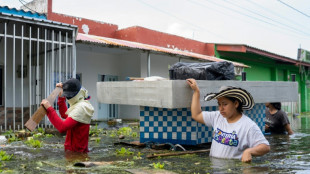
-
 Farhan propels Pakistan to 190-9 against USA in T20 World Cup
Farhan propels Pakistan to 190-9 against USA in T20 World Cup
-
US to scrap cornerstone of climate regulation this week

-
 Nepal call for India, England, Australia to play in Kathmandu
Nepal call for India, England, Australia to play in Kathmandu
-
Stocks rise but lacklustre US retail sales spur caution
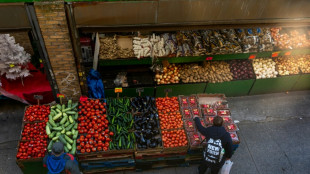
-
 Olympic chiefs let Ukrainian athlete wear black armband at Olympics after helmet ban
Olympic chiefs let Ukrainian athlete wear black armband at Olympics after helmet ban
-
French ice dancers poised for Winter Olympics gold amid turmoil

-
 Norway's Ruud wins error-strewn Olympic freeski slopestyle
Norway's Ruud wins error-strewn Olympic freeski slopestyle
-
More Olympic pain for Shiffrin as Austria win team combined

-
 Itoje returns to captain England for Scotland Six Nations clash
Itoje returns to captain England for Scotland Six Nations clash
-
Sahara celebrates desert cultures at Chad festival
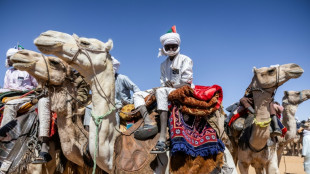
-
 US retail sales flat in December as consumers pull back
US retail sales flat in December as consumers pull back
-
Bumper potato harvests spell crisis for European farmers
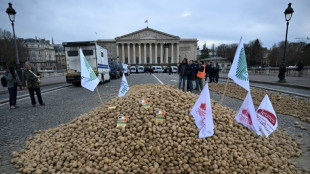
-
 Bangladesh's PM hopeful Rahman warns of 'huge' challenges ahead
Bangladesh's PM hopeful Rahman warns of 'huge' challenges ahead
-
Guardiola seeks solution to Man City's second half struggles


In Belgian farmland, 'Saving Bambi' one dawn mission at a time
Cedric Petit's drone hummed above a Belgian field. He spotted a white dot on the control screen: a tiny fawn nestled in the tall grasses -- soon to be rescued from a grisly end.
Four years ago, the 40-year-old wildlife lover founded a group with a simple mission: "Saving Bambi" helps farmers avoid the nasty surprise of finding a tiny mammal or nesting bird ground up by their machinery.
Called in before the harvest, usually last-minute and working for free, Petit and his fellow volunteers use drones equipped with heat-sensitive cameras to locate at-risk animals and move them to the safety of woods nearby.
"Accidents are happening more and more often -- that's why we're here," said Petit, tramping through a field of alfalfa, an animal feed crop, after a dawn rescue in Eghezee in central Belgium.
"Because of unpredictable weather linked to climate change, crops are growing all year round, and harvesting is coming earlier and earlier, including between late April and late June, which is the birthing period for fawns," said Petit, who grew up in a family of farmers.
Operating across Belgium and neighbouring Luxembourg, his association said it rescued 834 fawns last year -- up from 353 the previous year.
Its work is modelled on the example of Germany and Switzerland, where larger networks of volunteers carry out thousands of rescues every year across huge areas of farmland.
Petit's growing Belgian operation has around 80 drone pilots who freely devote their time during the most critical six weeks of the year -- like him, they work around their day jobs.
- 'Go blindly' -
To get a good wide view of a field, pilots fly their drones at a height of around 70 metres (230 feet) -- taking the time needed to spot a fawn curled at ground level.
Barely weeks old, the animals' spindly legs are still too frail to carry their own weight, making them entirely vulnerable to the blades of a giant mower.
On that morning in Eghezee, the drone sensor first spotted a hare enjoying a morning feast of alfalfa, then a young male roe deer taking a dawn stroll through the cool grasses.
At last Petit spotted a sleeping fawn, curled in a little ball.
He drew near, with gloves and a small crate covered in hay, to relocate the animal as gently as he can.
"This little guy is one-and-a-half, maybe two weeks old," said Petit. "Now we need to move him to safety at the edge of the woods, where his mother can find him."
Most rescues involve roe deer fawns, whose mothers move them from the woods into the fields after birth so they can bathe in sunlight in their crucial first days of life.
"Deer fawns are rarer -- they're tougher, like foals, and can keep up with their mothers pretty soon after birth," Petit explained.
Beyond the animal welfare argument, "Saving Bambi" also helps ward off botulism poisoning for livestock -- a risk were they to feed from bales of hay contaminated by animal carcasses.
"That's a big problem that is best avoided," summed up Bernard Debouche, the farmer who called Petit out on his latest early-morning mission.
Before knowing about the tracking system, Debouche would find the remains of a baby animal caught in the blades after mowing his fields -- a "very unpleasant experience," he recalled.
"We used to go blindly ahead, and sometimes we just couldn't see them -- they are so tiny we would just roll over them," he said.
"And no one wants to see a young fawn crushed by a mower."
P.Costa--AMWN
